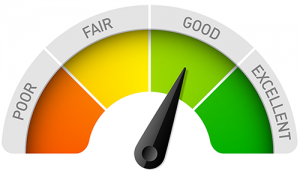 The use of credit information, including credit history, as a screening tool by employers is common. A 2012 SHRM study found that nearly half of all employers check job applicants’ credit history as part of the hiring process. Employer credit checks are also the reason many job seekers remain unemployed. A 2012 Demos study found that one in ten unemployed individuals was denied a job because of the information in their credit report.
The use of credit information, including credit history, as a screening tool by employers is common. A 2012 SHRM study found that nearly half of all employers check job applicants’ credit history as part of the hiring process. Employer credit checks are also the reason many job seekers remain unemployed. A 2012 Demos study found that one in ten unemployed individuals was denied a job because of the information in their credit report.
Fair Credit/Fair Chance
With the passage of “fair credit” and “fair chance” (a.k.a. “Ban the Box”) laws becoming more prevalent, more job seekers can be assured they will not be barred from employment opportunities because of a complicated history. So-called “fair credit” laws prohibit an employer from considering an applicant’s or employee’s credit history in making employment decisions. Similarly, “fair chance” laws limit employers from considering an individual’s criminal history in making hiring and employment decisions until a conditional offer has been made.
D.C. Fair Credit in Employment Amendment Act
This month, the District of Columbia became the most recent jurisdiction to adopt a fair credit law. The Fair Credit in Employment Amendment Act prohibits employers from making any type of inquiry, oral or written, whether pre- or post-offer, into an employee’s or prospective employee’s credit information, which includes as “any written, oral, or other communication of information bearing on an employee’s creditworthiness, credit standing, credit capacity, or credit history.” The ban pertains to any employment decision, including hiring, compensation, promotions, and other privileges or terms of employment. There are several exceptions to the credit check ban. Credit checks are permitted for certain positions at financial institutions and positions requiring additional security.
In recommending the legislation, the District’s Committee on the Judiciary questioned the value and effect of employment credit checks. It observed that employment credit checking perpetuates the low-credit debt cycle, disproportionately affects low-income individuals, women and minorities, and is often used as a proxy for moral character rather than a measure of job worthiness. The Committee also recognized increased employment in low-credit census tracts in the eleven states that already restrict employment credit checks.
Upshot
Employers in the District should familiarize themselves with the terms of D.C.’s fair credit law and verify employment forms and background checking practices to ensure compliance with the law. The District is expected to develop a public outreach campaign that should provide employers with additional direction. Finally, employers are advised that the penalties for violation of the law are steep – $1,000 for a first offense, $2,500 for the second and $5,000 for each subsequent violation. Employers are not required to post notice of the law.
